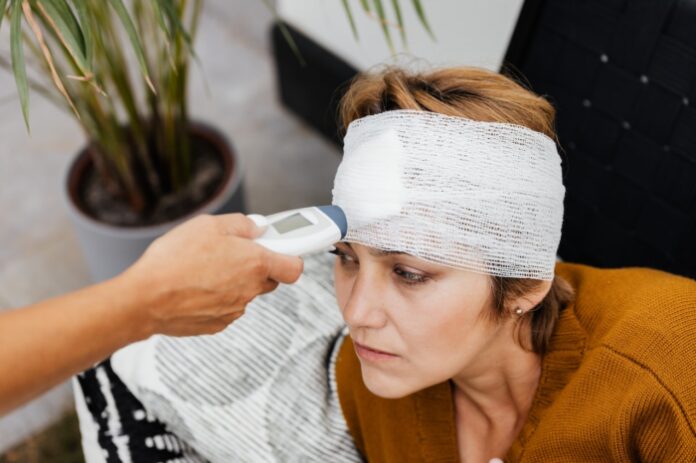No matter how safe a workplace is or what health and safety program has been implemented to prevent workplace injuries, accidents at work are an unfortunate reality. Very often, when an accident happens, and a worker is injured, there may be stress and confusion as to the steps that must be taken after such an event and by whom. If you have been injured while at work and sustained injuries, the injury attorneys at Ogg, Murphy & Perkosky recommend that you get legal representation to be clear on your situation and learn how to best fight for your rights.
However, to understand the safety and health responsibilities of each member of the work team, it is recommended that all members be trained in their assigned tasks before an accident and a workplace injury takes place.
Is There a Difference Between an Incident at Work and an Accident?
Incidents and accidents are both considered unplanned and sudden events. The difference is that while an incident is an event that could have resulted in an accident workplace, an accident causes harm to a person, property, process, or product.
Some examples of workplace incidents may happen when:
- A forklift is reversing and without noticing that an employee is standing behind it.
- An employee slips on an oily surface but manages to hold on to something and does not fall.
- Clothing that an employee is wearing gets caught in a machine, but it is torn before injuries occur.
Some examples of workplace accidents may happen when:
- An employee fails to wear fall protection equipment while working in construction and slips and falls.
- The employee is not wearing personal protective equipment and is burned with a chemical when he or she manipulates an unlabeled container of corrosive materials.
- Inventory falls to the ground because the shelves where it was stored were improperly installed.
Why Should Workplace Incidents Be Investigated?
Ignoring an incident at work may result in an accident in the future. By reporting the incident, management may recommend changes that need to be implemented in the workplace. In addition, keeping track of workplace incidents may point to issues with current work processes.
Why Should Workplace Accidents Be Investigated?
After an accident takes place, it is important to identify what caused it for future accidents to be prevented. In addition, investigation is necessary in order to process worker’s compensation claims.
What Steps Should Be Taken After a Workplace Accident?
An employee who is involved in a workplace accident must immediately report it to his or her manager or the person in charge at the time. The manager must be informed in detail about how the accident happened and the extent of the injuries. After that, these additional steps must be followed:
Get Medical Attention as Soon as Possible
Your first concern should always be your health, much more so after being injured at work. Depending on the extent and severity of the injuries, you or someone close to you may have to call an ambulance to take you to the hospital right away. Otherwise, get checked out by a medical professional following the accident, and let your physician closely examine your injuries. Some injuries are not immediately apparent, and only a trained professional may discover them. By acting swiftly, you may prevent internal injuries from getting worse over time.
Once a doctor confirms that you are safe from harm, schedule an appointment with the doctor approved by your employer. This is important, because it ensures that you qualify for the workers’ compensation benefits to which you are entitled. Make sure the doctor is clear on the fact that the injuries were sustained while you were at work. Take the time to inform the doctor about your physical symptoms or restrictions and any pain that you are experiencing.
Once the checkup is complete, the doctor will inform you when and if you can go back to performing your usual work duties. The doctor will provide both your employer and your insurer with information on the seriousness of your condition. If the doctor concludes that you cannot yet return to your regular work duties, you will be eligible to receive compensation for wages lost.
File a Workplace Injury Report
After the verbal report to your employer or manager, you should also file a workplace injury report. In the form, you need to provide all details of the accident, such as the date, time, and location, and a full description of your injuries. Make a copy of the form for your records. If you are unsure as to how to complete the form or feel that your employer is having issues with the information you have provided in it, you may want to consider hiring an attorney.
Keep a Journal of Your Injuries and Their Progress
Even if you have gone to the doctor and received a full medical checkup, it is still valuable for you to have your own notes. Keep a journal where you write all the symptoms that are caused by the workplace injury and how they are progressing. You may notice that, over time, your injuries improve, but they may also get worse. If there are no proper records of the impact the accident has had on your life, then it may be much more difficult for you to prove that the symptoms are related to the injury you sustained at work. The result may be that you would get under-compensated by your employer.
Keep Track of All Your Expenses
In addition to detailing your symptoms and their progress, it is important to keep an accurate record of all of your expenses in the journal. This should include everything you have had to pay out-of-pocket. For example, track the transportation costs to get to your medical appointments, the money you have not earned since being unable to return to work, bonuses or promotions you might not have received because of the accident you suffered at work, and any other expenses.
Document All Evidence
When you file for workers’ compensation, it works in your favor if you can back up your claim with pictures or videos of the scene and your injuries. Include anything that may have contributed to the accident, such as machinery that malfunctioned or anything else. It is difficult to argue against well-documented evidence.
Keep a Record of Your Interactions with the Insurance or Their Representatives
Take notes of any meetings and what was discussed, as well as the time, date, and location where they took place. Do this every time you meet and include the names and titles of everyone present. Having all this information may come in handy when there are issues regarding the compensation you will be getting.
Work with an Attorney
Regardless of who caused the accident, you are eligible to receive workers’ compensation benefits as long as you file a claim within two years of your workplace injury. If you encounter obstacles or if your employer is not willing to cooperate, then you should consider getting legal representation. You will need the professional guidance and expertise of a lawyer who has experience and success in handling workers’ compensation cases similar to yours. Your lawyer will help you navigate through any roadblock you may face that is not allowing you to get the compensation you deserve.
Find a Home-Based Business to Start-Up >>> Hundreds of Business Listings.

















































